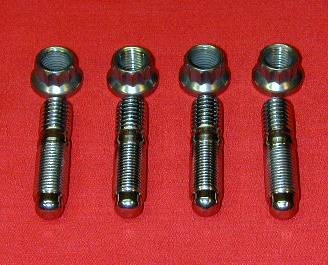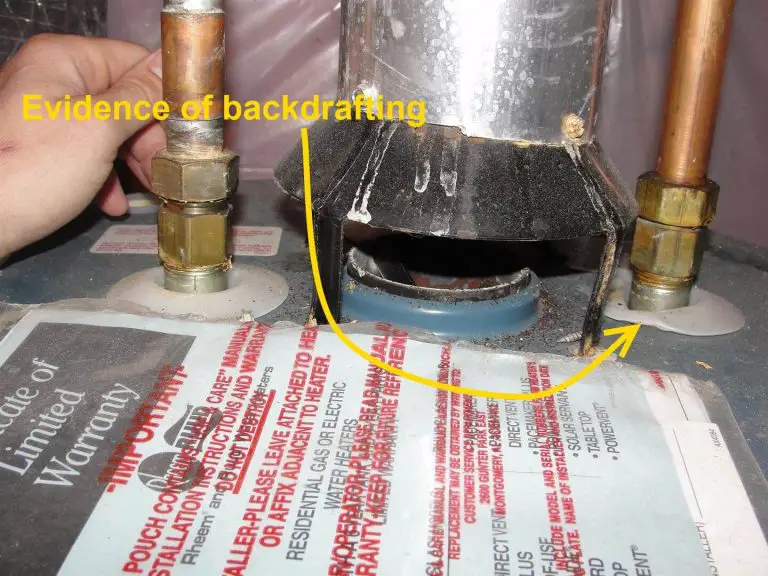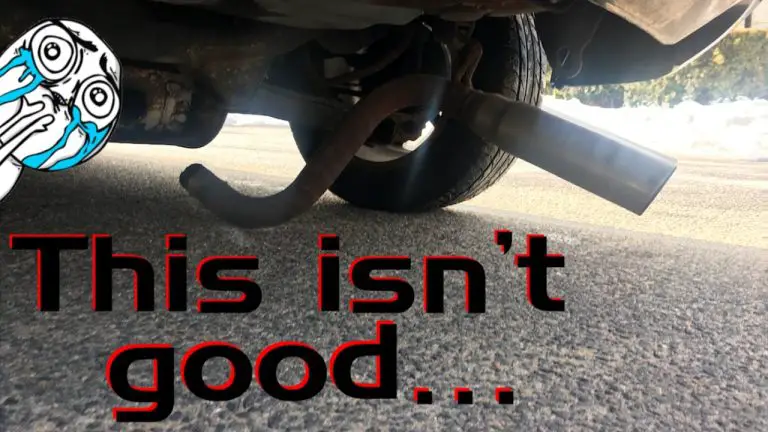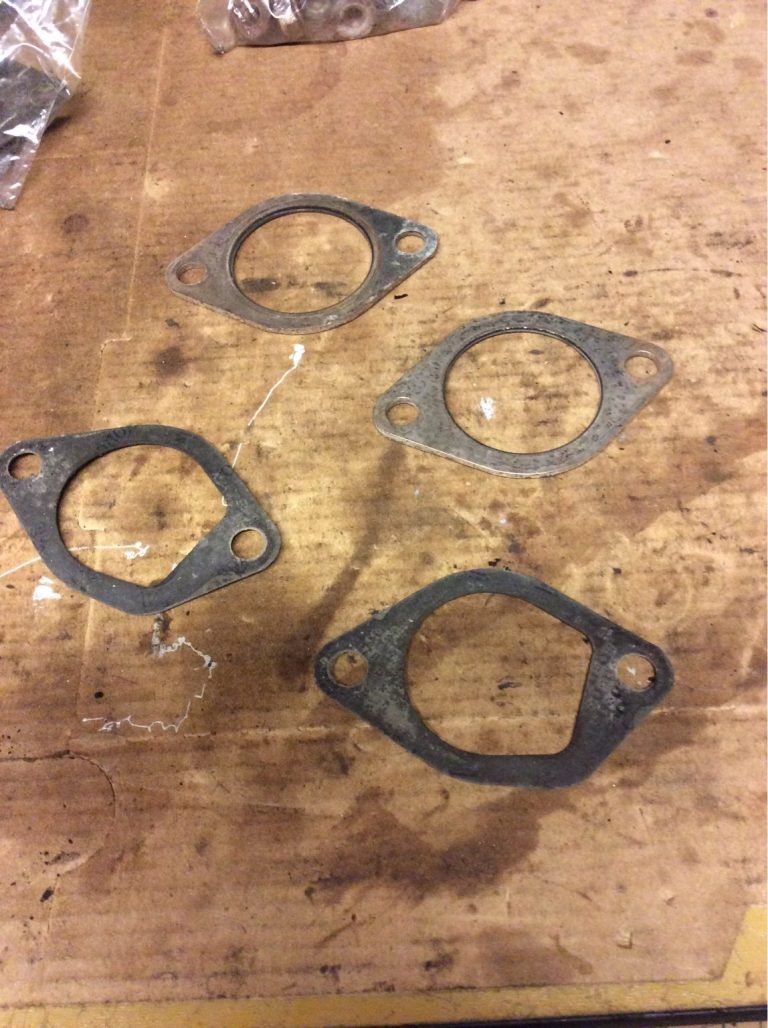Coolant in Exhaust But Not in Oil
If you see coolant in your car’s exhaust, it’s likely that there is a leak in the cooling system. However, if the coolant isn’t leaking into the oil, it’s not necessarily a cause for concern. It could just be condensation from the exhaust gas.
If you’re not sure, it’s best to take your car to a mechanic and have them take a look.
If your car’s coolant is in the exhaust but not in the oil, it could be a sign of a blown head gasket. The head gasket seals the engine block and cylinder heads, and if it fails, coolant can leak into the cylinders and mix with the oil. This can cause serious engine damage, so it’s important to have it fixed as soon as possible.
Tahoe Leaking Coolant Out The Exhaust? (FIXED)
What Happens If Coolant Gets in the Exhaust?
If coolant gets in the exhaust, it can cause a number of problems. The most serious problem is that it can lead to engine failure. Coolant can enter the combustion chamber and mix with the oil, causing the oil to break down and leading to engine damage.
Additionally, coolant in the exhaust can cause corrosion and clogging, which can reduce efficiency and power. If you notice any signs of coolant in your exhaust, it’s important to have your vehicle checked by a mechanic as soon as possible.
Why is Coolant Burning Through My Exhaust?
If you notice a burning smell coming from your car’s exhaust, it could be due to a leaking coolant system. If the coolant is leaking into the combustion chamber, it will be burned off along with the fuel. This can cause extensive damage to your engine and should be fixed as soon as possible.
There are several reasons why your car’s coolant system might be leaking. A faulty radiator cap or water pump can cause coolant to leak out. A head gasket leak is another common issue.
If the head gasket is damaged, it can allow coolant to seep into the cylinders and get burned off.
The best way to fix a leaking coolant system is to take your car to a mechanic and have them repair or replace the faulty part. In some cases, you may need to replace the entire cooling system.
If you don’t get the problem fixed, it could lead to major engine damage down the road.
Why Does Liquid Come Out of the Exhaust Pipe?
When a vehicle’s engine is running, three things are happening that cause liquid to come out of the exhaust pipe. First, the engine is burning fuel which creates heat. This heat turns the water in the cooling system into steam.
The steam rises and exits through the radiator cap. Second, oil is being burned in the engine. Some of this oil vaporizes and also exites throught the radiator cap.
Third, water is created by the chemical reaction between oxygen and hydrocarbons in the combustion chamber. This water vapor condenses on cold surfaces in the engine (such as the cylinder walls) and drips down into the crankcase where it mixes with the oil. Some of this water/oil mixture gets drawn into the engine’s cylinders during their intake stroke and gets burned along with the air/fuel mixture.
What Can Be Mistaken for a Blown Head Gasket?
There are a few things that can be mistaken for a blown head gasket. One is a cracked engine block. This will cause the engine to run rough and may even cause it to overheat.
Another possibility is a leaking intake manifold gasket. This will also cause the engine to run rough and may cause it to overheat. Finally, a failing water pump can also cause the symptoms of a blown head gasket, although this is less common.
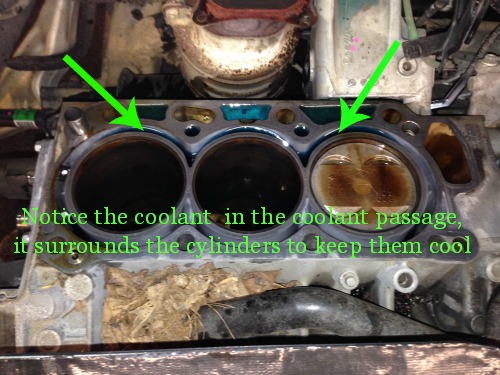
Credit: www.simple-car-answers.com
Coolant in Exhaust Diesel Engine
Coolant in the exhaust of a diesel engine is not something that should be ignored. If you notice coolant in your exhaust, it’s important to have your engine checked out by a professional as soon as possible. Coolant in the exhaust can be an indication of a serious problem, such as a head gasket leak or cracked cylinder head.
If you ignore coolant in the exhaust, it can lead to even more serious problems, such as engine failure. So if you notice any coolant in your exhaust, make sure to get your engine checked out right away.
Exhaust in Coolant Fix
If your car has been leaking coolant, it’s likely that the exhaust manifold is to blame. The exhaust manifold collects exhaust gases from the cylinders and routes them to the catalytic converter and muffler. Over time, the manifold can develop cracks and leaks, which can cause coolant to leak into the engine.
To fix this problem, you’ll need to replace the gasket between the exhaust manifold and cylinder head. You may also need to replace other components, such as the heat shield or catalytic converter. If you’re not comfortable doing this work yourself, take your car to a mechanic for help.
How to Tell If Coolant is Leaking into Exhaust
If you’re wondering how to tell if coolant is leaking into exhaust, there are a few things you can look for. First, check your coolant level and see if it’s low. If it is, that’s a good indicator that there may be a leak somewhere.
Next, check your engine oil. If it looks milky or has water in it, that’s another sign of a coolant leak. Finally, take a look at your exhaust pipe.
If it’s dripping water or has rust on it, that’s a sure sign that coolant is leaking into the exhaust system. If you see any of these signs, it’s important to get your vehicle checked out by a mechanic as soon as possible to avoid serious engine damage.
Conclusion
After reading this blog post, it is evident that there are a few potential causes of coolant in the exhaust but not in the oil. It could be due to a leaking head gasket, damaged cylinder head, or cracked engine block. However, the most likely cause is a blown head gasket.
If you notice any of these symptoms, it’s important to take your car to a mechanic as soon as possible to avoid further damage.


